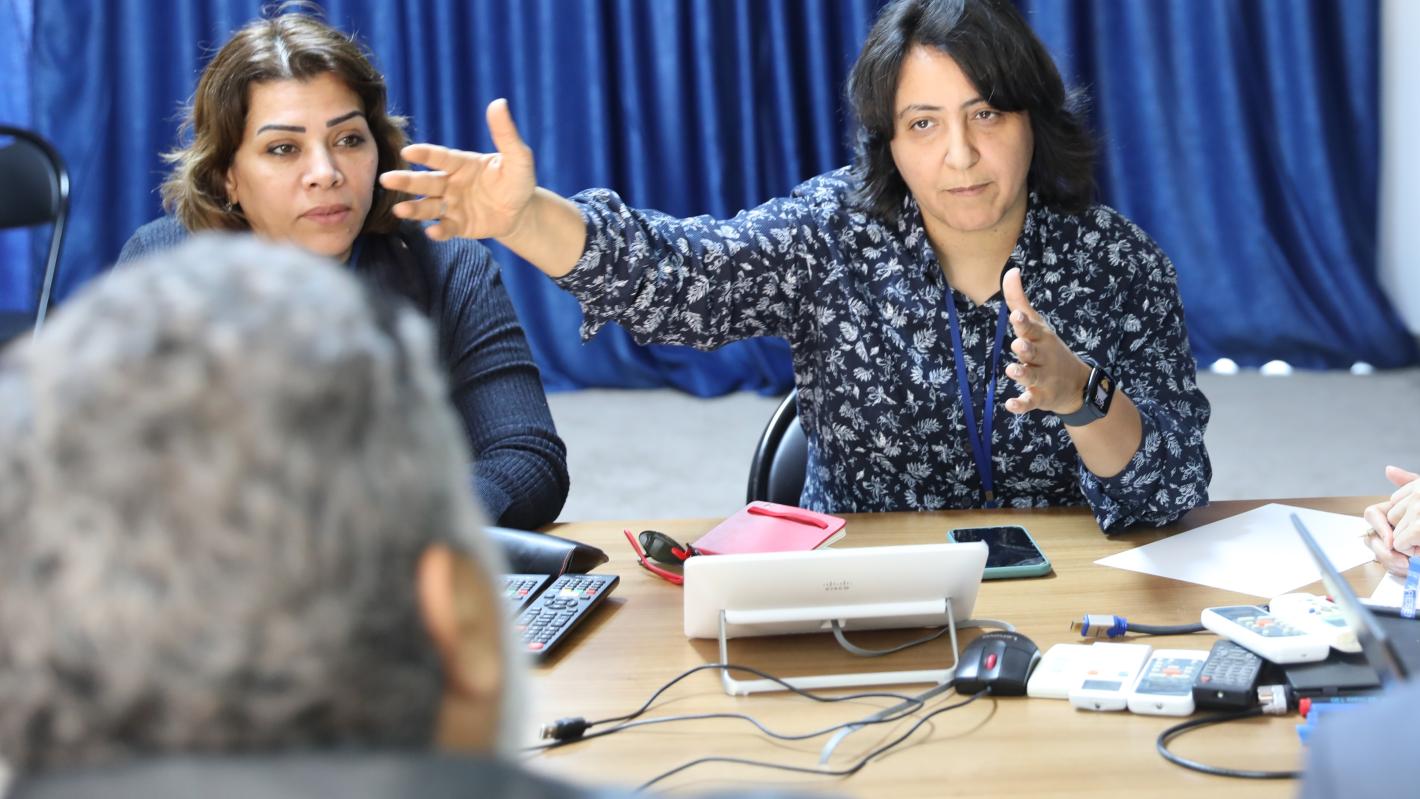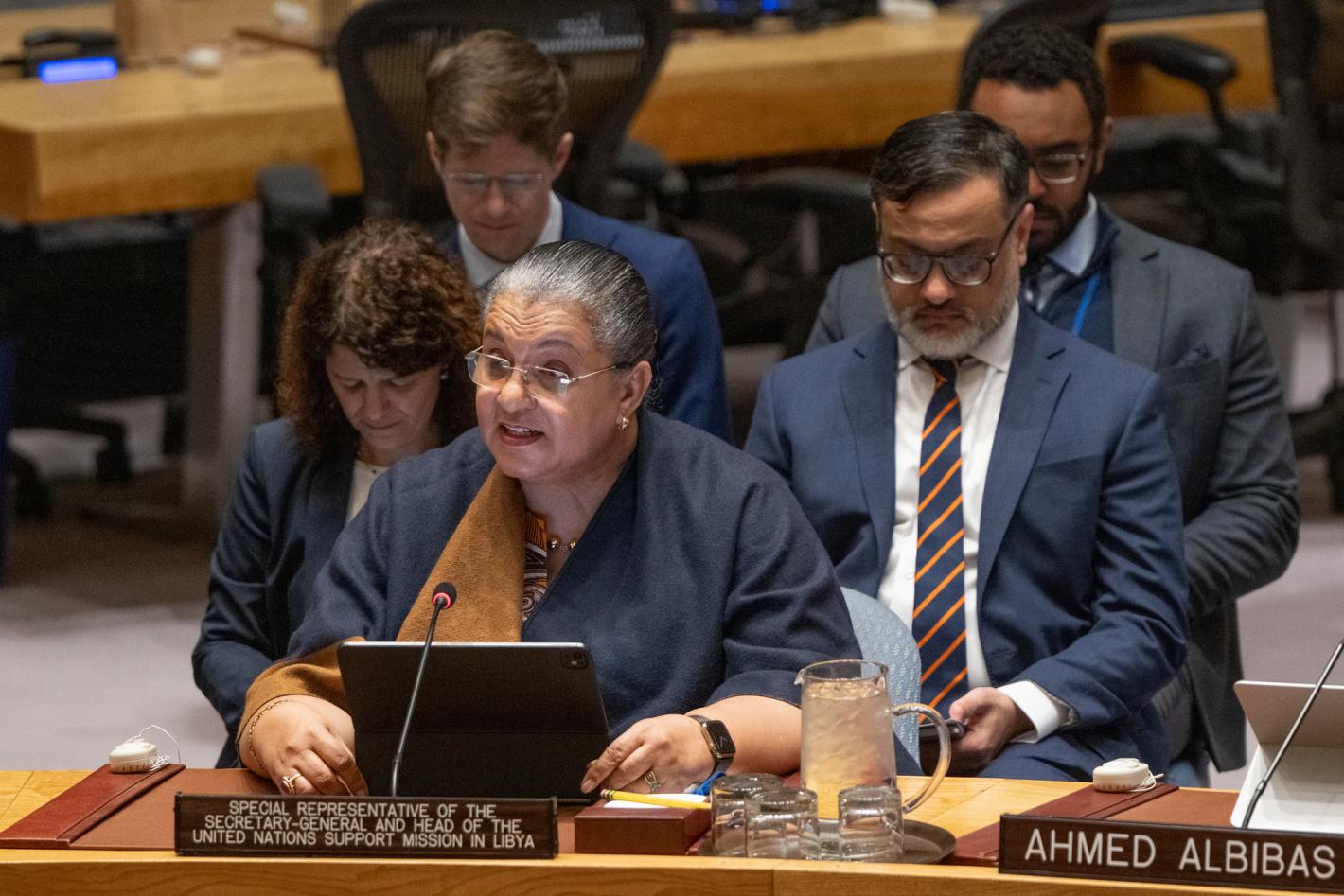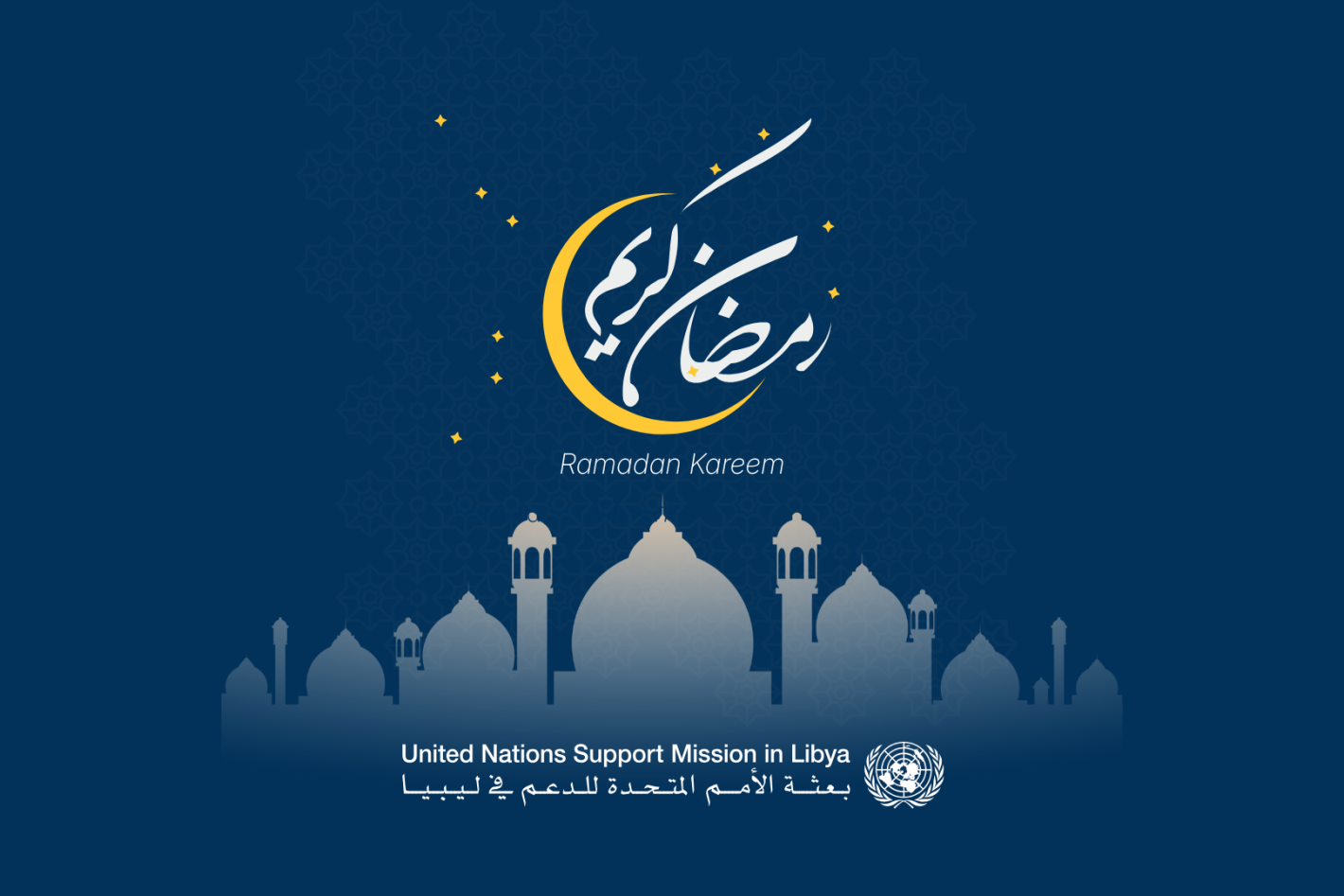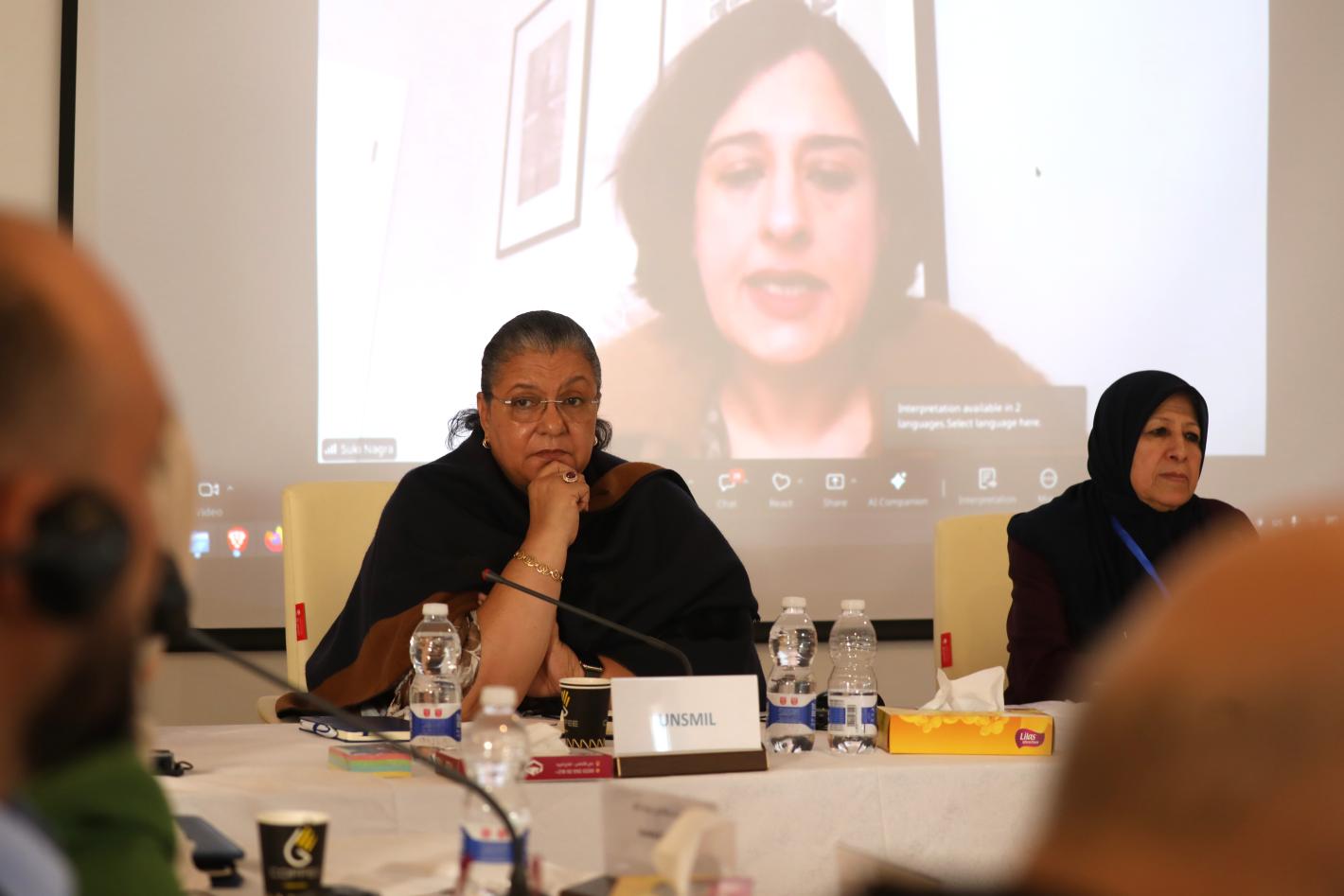TRIPOLI – 13 Februrary 2023 – The voices of labourers in Libya are not being heard amidst the protracted political crisis said the President of the Labour Union at a meeting with representatives of labour unions from across the country held at the premises of the United Nations Support Mission in Libya.
More than two dozen representatives from unions across Libya shared their concerns about how the political and security situation had meant they were regularly discriminated against through non-payment of salaries, had issues with poor equipment and sometimes had to manage harassment from militias.
“The security situation has prevented us from holding any vocational trainings to develop skills of people,” said Jaafar Othman Mohamed Al-Hamili, a member of the labour union in the city of Obari.
The Head of the Women’s Committee in the General Labour Union agreed, adding that the number of militias in the working environment raises challenges. This has sometimes meant that militias have put pressure on administrations and interfered in meetings she said.
“Women are harassed in the workplace – this is sometimes verbal, sometimes physical,” she said. “Many women withdraw from senior positions and move to lower positions where they are more secure and less visible. When a woman speaks up about the harassment she is seen as going against tradition.”
During the meeting held in December, the group said that supporting women in the workplace was a key concern, and that promised childcare provisions such as daycare should be provided to help those with parental duties return to the workforce. In addition, they felt laws around retirement ages were discriminatory to women and their right to work – men can work until they are 70, whereas women must retire by the age of 60.
The Head of the Women’s Committee said the unions try to support women being harassed and to raise awareness, but this is challenging. The group asked the UN to push for more female representation in political dialogues and to ensure that the government listens to labour unions and considers legislation for the equality of women and men in the workplace.
“After the war in 2014 we did not receive our salaries. Over 100,000 people in public companies and state institutions have not received their salaries for eight years,” said Al-Mahdi Ali Omar Bouthen, a worker in a cable company in Misrata, adding that they were beaten by security actors when they peacefully demonstrated to be paid.
Khaled Muhammed Hashem Ali, Head of the Labour Union of Southern Libya, emphasized the lack of structure and collaboration between the government and the labour unions. “We are in a legitimacy vacuum and the government does not understand the role of labour unions,” he said, stressing the lack of representation of labour unions in the political dialogue. “UNSMIL needs to insist that labour unions are represented in the political dialogue”, he said.
The human rights team have been holding a series of inclusive dialogues with people from across Libya to understand the challenges they face and are compiling a list of recommendations for Libyan decision-makers. To date they have met with nearly 200 people and held a digital dialogue with 330 more.






